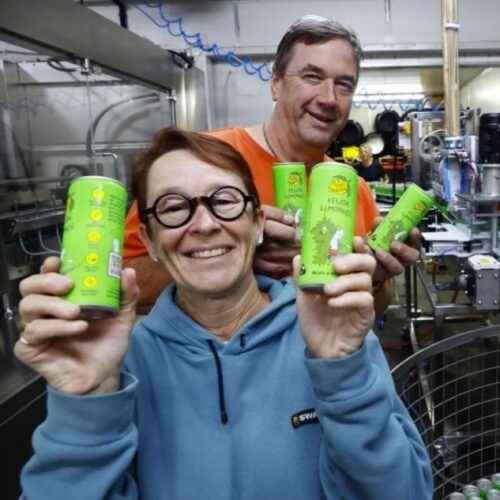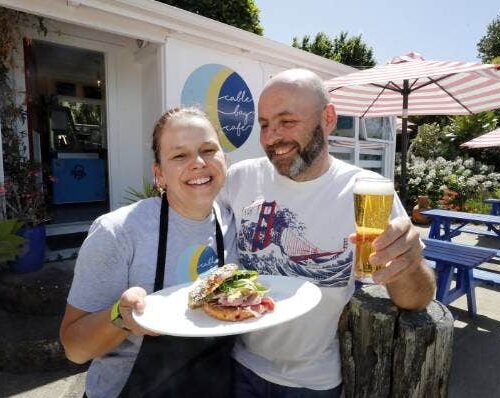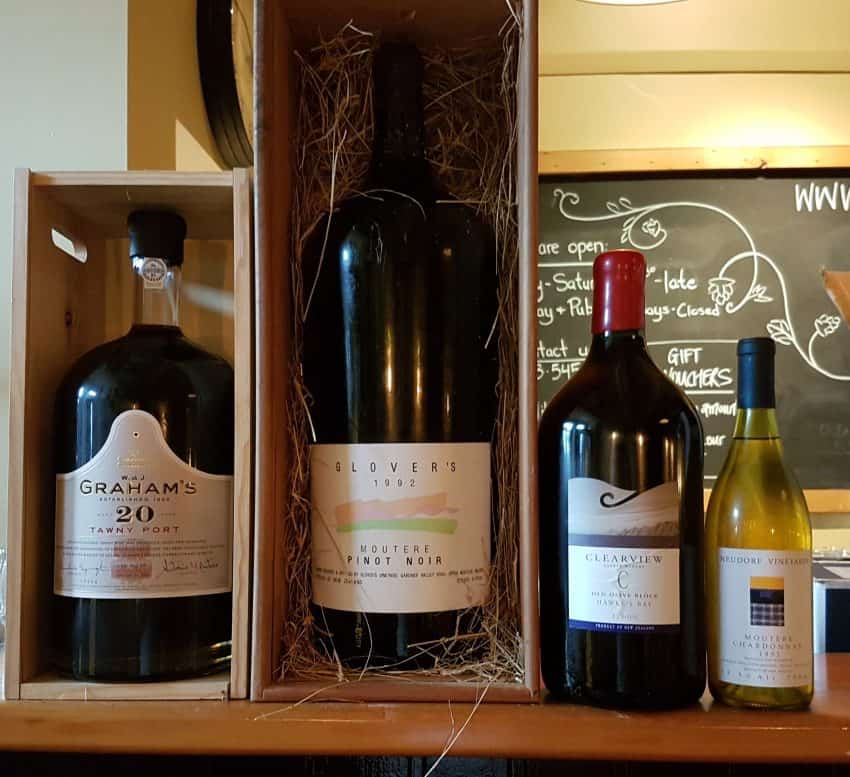
French wine tasting and dinner – Nelson Mail 02.05.18
Over the years I have written a few columns on the benefits of having a wine cellar; too often these days we just grab something from the shelf in the supermarket when we are shopping but while many wines are delightful to drink when they are young and fresh there are many more that will improve with a little age.

Someone asked me recently why wineries didn’t cellar the wine before they sell it to us if it isn’t ready for drinking yet, the answer is quite simple – cost. Wineries have huge costs in producing every bottle of wine and need to pay excise tax when the wine is made so unless a winery owner has very deep pockets they need to sell the wine so they have enough cash to make next year’s wines.
That beggars another question, how do you know what wines to buy that will improve with a few years extra bottle age? Simple, take some time to learn about wine, the structural things in a wine that it needs to age well, go to as many tastings as you can and learn from the people presenting those tastings.
When I talk about the structural components of a wine it is a bit like a building, it needs solid foundations and a frame to hold the cladding and decorations; in red wine terms think of tannins as the foundations and fruit intensity as the frame, without tannin the wine will just be fruity and easy drinking, ready to drink now and probably won’t cellar long term.
Of course the wine needs ripe fruit flavours to build on the tannin base and then the fruit can deliver things like beautiful aromas, or the decorations.
The skill of the wine maker is making sure all of these things are in balance, something easy drinking for consuming young or something designed to age for many years and develop even more layers of complexity over time.
Cellaring wine is also a time when size does matter, wines in large format bottles like magnums, double magnums (three litres) and even Salmanazar bottles (nine litres) will live a lot longer than standard 750ml bottles; magnums in particular are prefect for a dinner party.
A cellar also needs to have a reasonably constant temperature and be away from direct sunlight so a wardrobe, dark cupboard or in a cool garage are good places to store wine if you want to age them.
How do you learn about wine and which ones to cellar? Taste, taste, taste and taste some more. As one wine writer said to me many years ago never walk past the opportunity to taste wine, be it in the supermarket, liquor store, at a winery or even at a party.
Now I don’t mean taste by drinking glass after glass of wine, just try very small amounts and focus on remembering what you like and what you don’t like; there is no right or wrong answer to flavours of wine you like, we all have different taste buds so discovering wines you enjoy is a very personal thing.
I try to attend some of the formal tastings run by Casa del Vino, especially those presented by Jean-Christophe Poizat from Maison Vauron in Auckland, JC as he affectionately known comes from a long line of French wine merchants and has a huge knowledge about his home country and the wines produced there.
A couple of week’s ago I went along to listen to him talk about wines from the Southern Rhone region of France and to taste some of the wines from the region.
We tasted wines made from grape varieties typical of the region – Viognier, Claritte, Marsanne, Grenache, Syrah and Mouvedre but as is common in many French wine regions the wines we tasted were varying blends of these grape varieties.
One reason I have been a not very regular attendee in recent years is that I just can’t resist buying more wines for our cellar so the easiest way is to not be tempted in the first place, but at this tasting I remembered why I like them so much, it is an opportunity to learn more about wine and taste wines you probably wouldn’t buy if you hadn’t tasted them first.
And yes, a few bottles of the wines we tasted made their way into our cellar; the first because it is an interesting white wine made from Grenache Blanc, Claritte and Marsanne, the Clos des Cazaux Vacqueyras blanc ‘Clefs d’Or’ 2016 isn’t a wine we will keep for a long time but is a complex wine that is light, fresh and perfect for drinking within the next three years.
Another highlight of the tasting for me was St. Francois Xavier Gigondas 2015, this is a powerful wine that will reward your patience if you tuck some in your cellar for up to ten years, both these wines retail for less than $45 so aren’t too expensive to put in the cellar before you drink them at their best.
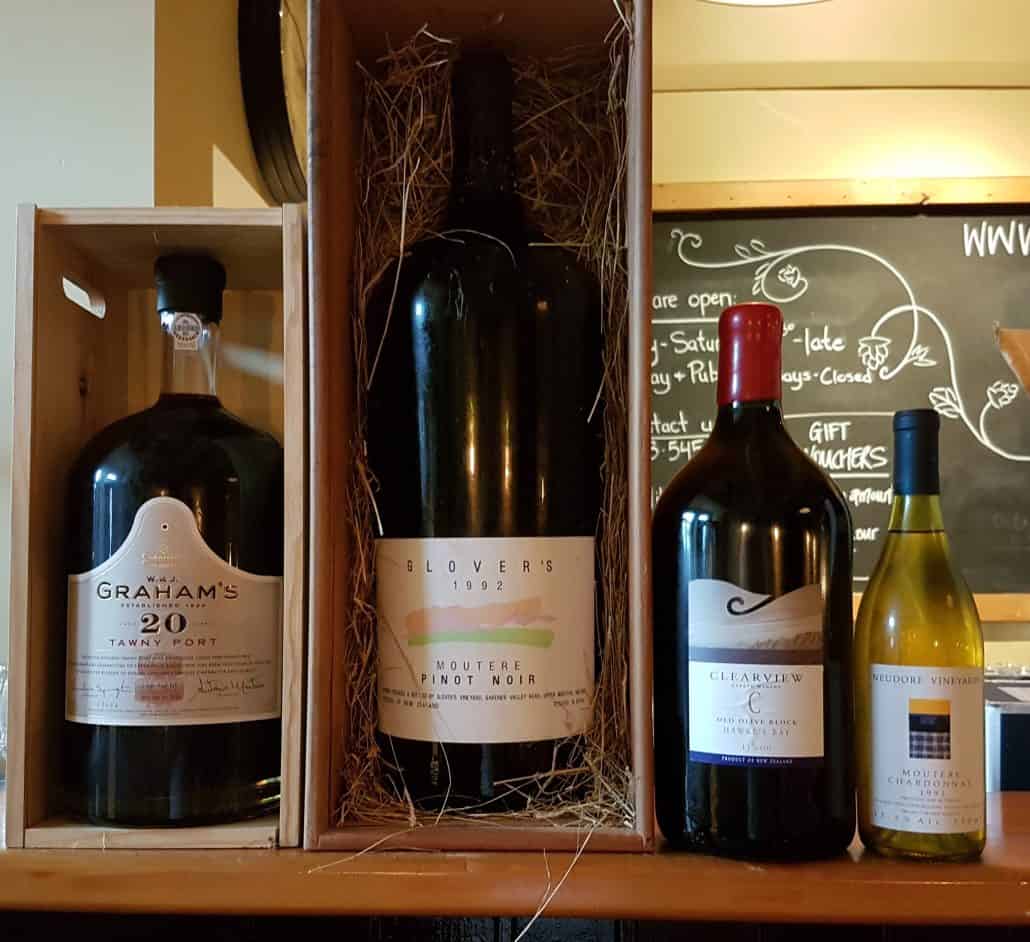
Because we have been cellaring wine for about 30 year we have a number of old wines in our cellar so when do we drink them? Sometimes we will open something just to try it and see how it is aging, we do have a number of wines I refer to as ‘learning wines’, some are wines you wouldn’t normally cellar, like sauvignon blanc, but I think you need to try older wines to help work out what will last a long time.
When it comes to the very large bottles then you need an occasion, or maybe you create an occasion to open them. Last weekend we organised a dinner at Hopgood’s & Co restaurant because we wanted to open a nine litre bottle of Glover’s Vineyard 1992 Pinot Noir, head chef Aaron Ballantyne created a menu to match with this wine and a few other large bottles we decided to open.
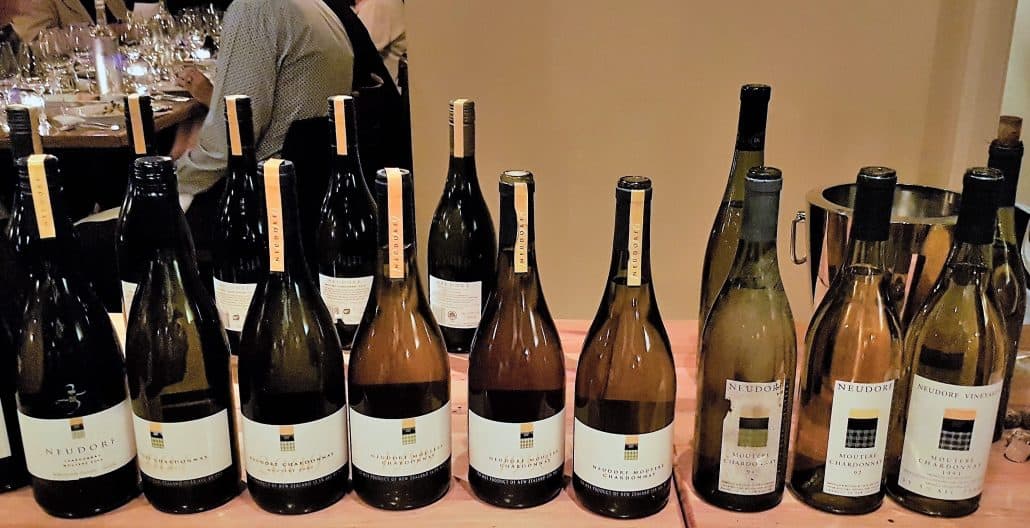
Because we had invited winemakers and wine lovers to the dinner we also had a table of wines for tasting, including a number of vintages of Neudorf Vineyards Moutere Chardonnay, the vintages ranged from 1991 to 2017 and trying wines that cover a 26 year period and included wines sealed with corks and screwcaps gave us the chance to see not only the impact of screwcap closures on the wines but also how our tastes have changed over the years.
As you would expect some of the wines sealed with a cork were past their best but were still very drinkable, in fact the 1991 Moutere Chardonnay was the star wine of the night, Tim Finn crafted a remarkable wine 26 years ago and the fact it is still incredibly fresh and vibrant points to the reason Neudorf Vineyards is considered one of New Zealand’s premiere wine makers.
And the Glover 1992 Pinot Noir? It was fresh and vibrant with restrained fruit flavours and is another outstanding Nelson wine that has stood the test of time.

